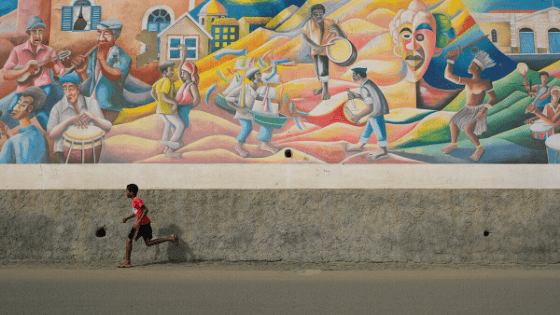by Richard Haney, Executive Director
George Floyd died in custody of four policemen on Memorial Day in Minneapolis. On a day set aside for remembering people who have died serving their country, his tragic death is a stark reminder of injustice and suffering that continues to divide our nation. The video image of a uniformed policeman with a knee pressing into Mr. Floyd’s neck is sickening to watch. The horrific event has ignited demonstrations, protests and violence across our country. And this takes place against the background of a global pandemic that is afflicting people of color in disproportionate numbers.
What does this moment mean for frontier mission?
The Lausanne Covenant, a historic mission document crafted by John Stott (1974), includes the phrase, “evangelization requires the whole church to take the whole gospel to the whole world.” That’s a memorable and apt phrase—the whole Church taking the whole Gospel to the whole world.
In the words of Lausanne spokesperson Chris Wright, “The whole Church means all believers. The whole world means every man and woman. The whole gospel means all the blessings of the gospel.”
To think today of the “whole church” means to appreciate we live in an era of global Christianity. Christian believers live on all continents and in every country. Americans Christians do not occupy the center of gravity. We are not in the majority of Christ-followers worldwide. One of the most important facts of our age is the demographic reality that 65% of all Christians live in the non-Western global South. Christianity is more Asian and African, less white and less Western than it ever has been. For mission, this means that an increasing number of church leaders and cross-cultural workers will come from Asia, Africa and Latin America. These new and younger Christians inevitably must lead the way in framing mission strategy and implementing it.
To speak of the “whole gospel” is to realize the Good News comes from the whole Bible and not simply a portion of it. The Good News of Jesus points to God’s Kingdom and is proclaimed in both word and deed; Gospel salvation is a big word echoing the old covenant picture of shalom and including forgiveness, reconciliation, peace and justice. For mission, bearing witness includes the kerygma (proclamation) of the Gospel and demonstrating Gospel fruit toward one’s neighbors: love, joy, peace, patience, kindness, goodness, faithfulness, gentleness and self-control.
The “whole world” is a diverse collection of tribes, languages and peoples that now numbers almost 7.7 billion persons. The reference to tongues, tribes and peoples is implied in the promise given to Abraham to be a blessing to all the peoples on earth (Genesis 12:1-3). And the promise fulfilled is pictured in the book of Revelation where a multitude from every nation, tribe, people and language gather to worship Jesus the Lamb (Revelation 7:9-12). Demographers tell us the earth is filled with more than 10,000 distinct ethnic people groups. Frontier mission advocates like Frontier Fellowship champion the need for unreached peoples to gain access to the Good News.
We champion the need for access because we care for all peoples. We care about all peoples because we are sure that God does. God made every person in His image, thereby conferring dignity and value upon each one. When the apostle Paul writes to the Galatians (3:28 NLT) that “There is no longer Jew or Greek, slave or free, male or female,” he is highlighting the Kingdom reality expressed in the powerful phrase: “for you are all one in Christ.”
We confess that the Church has often failed to be a sign and a witness to a Kingdom of gender, racial and social oneness. George Floyd’s death is a call to all of us to examine together how we can live out oneness across our differences and distinctions. We are challenged in this moment to work together to identify where we are falling short of God’s glory as a people of oneness and find ways to live in mutual respect, honor and joyful celebration of each other.
So what does George Floyd’s tragic death say to us in light of frontier mission?
The same regard for people that might motivate someone to protect the unborn ought to motivate us to feed the hungry, preach Good News and safeguard justice for the oppressed. Surely the Church must lead the way in a passionate regard for the value of all human lives. May the same regard we have for unreached peoples in Asia and the Middle East motivate us to show and to share God’s love with people of color in our nation. May our African-American brothers and sisters receive equal protection and just treatment from law enforcement officials. May the immigrants within our borders be treated with kindness and dignity.
How do we help to change our patterns and habits that express care about “the other” far away but seem not to respect our near neighbors? We must pray and listen. May the Lord show us what to do and may we act accordingly.
Our United States hardly seems united at the moment. Rich and poor. Black, brown and white. Progressive and conservative. Religious and Nones. Where diversity might display richness and breadth, divisiveness blunts any message we declare about Good News. Jesus walked the earth as a brown-skinned Palestinian. How might He be treated among us if He traveled here today incognito?
At Frontier Fellowship, we recently welcomed our first African-American staff members. They are joining a mostly white mission agency with a passion to mobilize churches of color for frontier mission. What a gift they are to us! It’s taken many years to reflect God’s love for diverse peoples in our staff membership though we affirm this value in our partnerships around the world. We have more work to do. Maybe we are a little bit like the American Church—slowly realizing that it will take the whole Church to take the whole Gospel to the whole world.


Comments are closed.